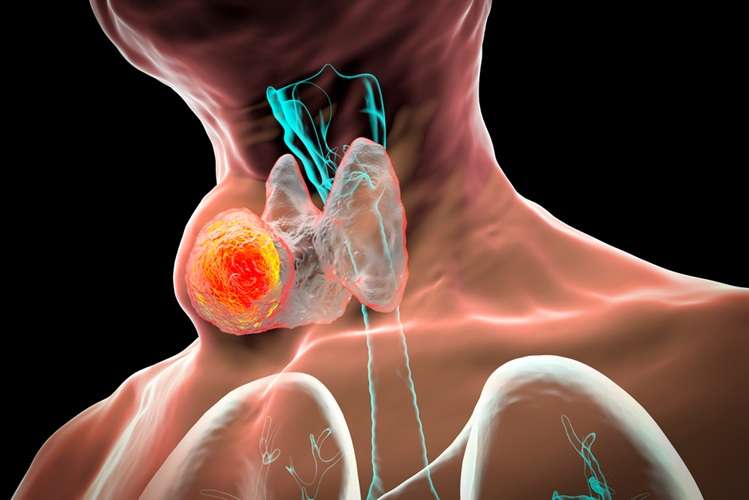New Delhi, May 26, 2025 — In a significant advancement for endocrinology, artificial intelligence (AI) is transforming thyroid disorder diagnosis and treatment, offering increased accuracy, faster detection, and personalized care. With thyroid-related conditions affecting millions globally, AI’s integration into clinical practice marks a turning point in patient outcomes and healthcare efficiency.
Thyroid diseases — including hypothyroidism, hyperthyroidism, thyroid nodules, and cancer — often go undetected due to vague symptoms and diagnostic delays. However, recent developments in AI algorithms are enabling healthcare professionals to interpret diagnostic imaging and lab results with higher precision and speed.
AI in Thyroid Diagnosis: A Technological Milestone
Experts report that machine learning models trained on large datasets of thyroid function tests, ultrasound images, and biopsy results can now identify abnormalities with remarkable accuracy. AI-powered tools are especially effective in detecting early-stage thyroid cancer and distinguishing between benign and malignant nodules using fine-needle aspiration cytology (FNAC) results and imaging data.
Dr. Anjali Menon, an endocrinologist at AIIMS Delhi, said,
“AI tools are helping us not just detect thyroid disorders earlier, but also reduce human error in interpreting results. They can suggest likely diagnoses based on a combination of biomarkers, ultrasound patterns, and patient history.”
One of the most impactful applications has been in thyroid ultrasound image analysis. Deep learning models can assess image features that may be too subtle for the human eye, leading to more accurate classification of nodules and reducing unnecessary biopsies.
Patient-Centered Benefits and Personalized Treatment
Beyond diagnostics, AI contributes to personalized treatment strategies by analyzing a patient’s genetic makeup, lifestyle factors, and response to previous therapies. Platforms powered by AI can recommend optimized medication dosages for hypothyroidism patients or predict potential relapses in autoimmune thyroiditis.
AI is also being integrated into wearable technology that continuously monitors vital signs such as heart rate and temperature, providing valuable data to predict and manage symptoms linked to thyroid dysfunction.
AI Adoption in India’s Healthcare System
In India, where thyroid disorders are widespread — particularly among women — AI is gradually being adopted in both urban and rural healthcare centers. Several government and private hospitals have begun deploying AI-assisted diagnostic platforms to bridge the gap between demand and availability of endocrinologists.
Telemedicine platforms equipped with AI features are also playing a crucial role in screening patients in remote regions, where access to specialists is limited. These platforms use AI to analyze symptoms, suggest preliminary diagnoses, and guide referrals, significantly improving early intervention rates.
Challenges and Ethical Considerations
Despite the promise AI holds, challenges remain. Data privacy, algorithmic bias, and regulatory approvals are critical concerns that must be addressed. Medical experts stress the importance of using AI as a clinical support tool, not a replacement for physician judgment.
“AI is a powerful aid, but human oversight is essential,” emphasized Dr. Menon. “Its strength lies in assisting clinicians, not replacing them.”
Conclusion
As artificial intelligence continues to evolve, its role in thyroid care is set to expand further — offering hope for earlier diagnoses, reduced misdiagnosis rates, and improved quality of life for patients. With continued investment in digital health infrastructure and ethical integration, AI could redefine thyroid healthcare in India and beyond.



